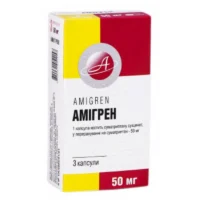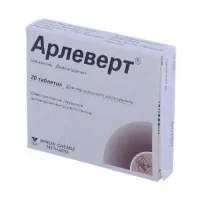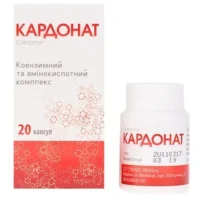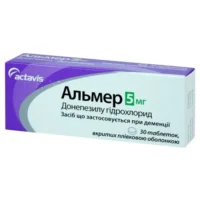Description
Rexetin (Paroxetine) Coated Tablets 30 mg. №30
Ingredients:
- Each coated tablet contains 30 mg of paroxetine as the active ingredient.
- Inactive ingredients include lactose, magnesium stearate, hypromellose, titanium dioxide, polyethylene glycol, and more.
Dosage:
The usual recommended dose is one 30 mg tablet daily, with or without food. Dosage may vary based on individual response and should be determined by a healthcare provider.
Indications:
Rexetin tablets are indicated for the treatment of depression, anxiety disorders, obsessive-compulsive disorder (OCD), post-traumatic stress disorder (PTSD), and other conditions. It works by restoring the balance of serotonin, a natural substance in the brain.
Contraindications:
Do not use Rexetin if you are allergic to paroxetine or any of the inactive ingredients. It is contraindicated in combination with monoamine oxidase inhibitors (MAOIs) and thioridazine due to the risk of serious drug interactions.
Directions:
Swallow the tablet whole with water; do not crush or chew it. Follow the dosage instructions provided by your healthcare provider. It may take several weeks to experience the full benefits of Rexetin.
Scientific Evidence:
Paroxetine, the active ingredient in Rexetin, is a selective serotonin reuptake inhibitor (SSRI) that works by increasing the levels of serotonin in the brain. This neurotransmitter plays a key role in regulating mood, emotions, and behavior. By inhibiting the reuptake of serotonin, paroxetine helps improve symptoms of depression, anxiety, and other disorders.
Additional Information:
- It is important to inform your healthcare provider about any other medications you are taking before starting Rexetin to avoid potential drug interactions.
- Common side effects may include nausea, dizziness, dry mouth, and insomnia. If you experience any severe side effects or allergic reactions, seek medical attention immediately.
Compared to other SSRIs, paroxetine has shown comparable efficacy in treating depression and anxiety disorders. Individual response to medication may vary, and it is essential to work closely with a healthcare provider to find the most suitable treatment option.





